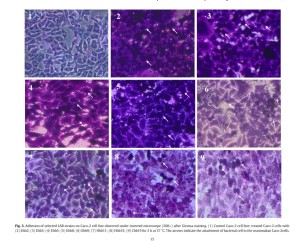
Probiotic Potential of Lactic Acid Bacteria from Honeybees: A Leap Forward in Functional Foods
In the realm of functional foods, the discovery of probiotic strains with exceptional health benefits is a breakthrough that promises to revolutionize the industry. A recent study delves into the probiotic potential of lactic acid bacteria (LAB) isolated from the stomach of honeybees, offering insights into their functional and technological prowess.
The research highlights the resilience of LAB strains to gastric acid, showcasing their ability to survive in simulated gastric juice at a pH of 2 after two hours of incubation. This remarkable survival rate is indicative of their robustness and suitability for use in probiotic products.
The study also sheds light on the autoaggregation and hydrophobicity of LAB isolates, which are critical for their adhesion to intestinal epithelial cells. Strains such as Ehb3, Ehb5, and Ehb8 demonstrated the highest values, suggesting their strong potential for effective intestinal adhesion. These properties are essential for probiotics to confer their health benefits effectively.
Antioxidant activity is another vital attribute of probiotics, and the LAB strains in this study did not disappoint. Using DPPH and ABTS radical scavenging tests, strains Ehb3 and Ehb5 exhibited outstanding antioxidant capabilities. This not only suggests their role in enhancing the shelf life of probiotic products but also their contribution to the health benefits associated with antioxidant properties.
The ability of these LAB strains to ferment milk and maintain viability above the technological requirements for probiotic products during storage further underscores their potential. The study’s findings suggest that these LAB isolates from honeybee stomachs exhibit promising characteristics that make them suitable candidates for potential probiotics with health benefits.
As the quest for novel probiotics continues, the isolation and assessment of LAB from unique sources such as honeybee stomachs open new avenues for developing functional foods that support gut health and microbiota balance. The implications of such research are far-reaching, with the potential to impact not only the food industry but also the medical field, where probiotics play a crucial role in preventing and managing various chronic diseases.
In conclusion, the probiotic potential of LAB isolated from honeybees’ stomachs is a testament to the untapped resources nature offers. The study provides a foundation for future research and development of probiotic products that can cater to the growing demand for health-enhancing functional foods. As we continue to explore the benefits of these microscopic marvels, we edge closer to a future where functional foods play a pivotal role in maintaining and improving our health.
Full text can be found at:
Shehata, M. G., Masry, S. H. D., Abd El-Aziz, N. M., Ridouane, F. L., Mirza, S. B., & El-Sohaimy, S. A. (2024). Probiotic potential of lactic acid bacteria isolated from honeybees stomach: Functional and technological insights. Annals of Agricultural Sciences, 69(1), 11-18. https://doi.org/10.1016/j.aoas.2024.06.001
